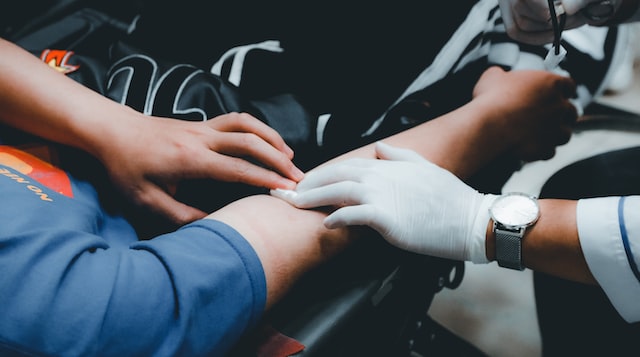FDA to Allow More Gay and Bisexual Men to Donate Blood – Scrubs Magazine

The Food and Drug Administration is finally reversing its policy on when and how gay and bisexual men can donate blood. Men who have sex with men (MSM) have long faced discrimination when trying to donate. Since the AIDS epidemic, MSM were asked to abstain from sexual activity before donating blood. The abstention period has periodically shortened over time, but now the FDA says it will conduct an individual risk assessment for each donor instead using time-based deferrals.
The previous policy required MSM to abstain from sexual activity for three months before donating. But under the proposed change, any gay or bisexual man looking to donate blood will be asked to answer an individual set of risk-based questions, including whether they’ve had any new sexual partners in the last three months. If they have had new sexual partners and have had anal sex within the last three months, they won’t be allowed to donate.
The time-based deferrals would also be eliminated for women who have sex with MSM.
“Based on the available data, the agency believes the implementation of the proposed individual risk-based questions will not compromise the safety or the availability of the U.S. blood supply. Our approach to this work has always been, and will continue to be, based on the best available science,” FDA Commissioner Dr. Robert Califf said Friday.
Blood banks will continue testing blood donations for HIV, hepatitis B and hepatitis C.
Those taking HIV-prevention drugs, including pre-exposure prophylaxis (PrEP), will also be asked to undergo a deferral period. Anyone taking PrEP medications must wait three months from their most recent dose, while those taking injectable PrEP drugs must wait two years.
“This is simply a matter of following the data that we have at this time, which is that we know that people who take PrEP – at least, at this point with our knowledge of PrEP – that if you look at the population overall taking PrEP, there’s a certain risk currently of contracting HIV,” said Dr. Peter Marks, director of the FDA’s Center for Biologics Evaluation and Research.
“So until we can better sort out who is of lower risk in that group taking PrEP, we need to put this donor deferral in place for PrEP,” he said. “That’s not to say that we won’t continue to look at this and try to refine things further. It’s just that ultimately, as we move forward, we have to maintain the current safety of the blood supply, and moving forward as we’re doing now, this may not be the final resting place of where we end up, but it allows us to move forward and to at least make a leap forward to allow some men who are not taking PrEP to donate.”
The U.S. is still recovering from a shortage of blood donations caused by the COVID-19 pandemic. Experts estimate the country will need an additional one million blood donors over the next five years to ensure patients receive the right type of blood to save and improve their lives, with a particular need for Black African, Black Caribbean and younger donors.
The change in policy is meant to increase the pool of potential blood donors. Just last week, around 20% of blood centers nationwide had less than a day’s supply of blood on hand, while only 29% had enough to last one to two days.
Members of the LGBTQ+ praised the reversal. Thousands of gay and bisexual men have already pledged to donate blood now that the rules have changed.
The U.S. would’ve had an extra 480,000 blood donors in 2019 if MSM had been eligible to donate blood without a deferral period, according to a recent analysis. Another study found that lifting the time-based deferral would increase the total annual blood supply by 2%-4%, adding anywhere from 345,400 to 615,300 pints of blood each year.
“Whether it’s for someone involved in a car accident, or for an individual with a life-threatening illness, blood donations save lives every day,” said FDA Commissioner Robert M. Califf, M.D. “Maintaining a safe and adequate supply of blood and blood products in the U.S. is paramount for the FDA, and this proposal for an individual risk assessment, regardless of gender or sexual orientation, will enable us to continue using the best science to do so.”
Carl Schmid, the executive director of the HIV+Hepatitis Policy Institute, praised what he called the “long, overdue” decision.
“This marks a monumental shift and ends a long and painful era of blanket discrimination against gay men,” Schmid said. “No longer will eligibility to donate blood be based on sexual orientation. Instead, every person, no matter their sexuality, will be reviewed individually in order to determine their eligibility to donate.”
